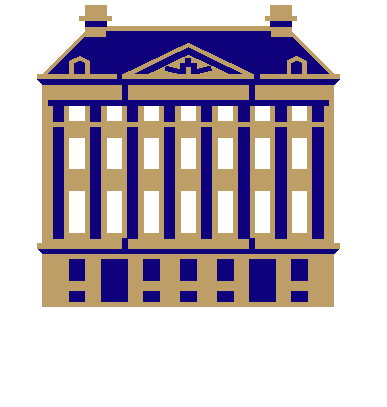Tutorials
An overview of the tutorials is shown below. Additionally, the schedule shows when the tutorials take place.
| Title | Tutor(s) | Material | |
|---|---|---|---|
| T1 | AI Planning for Industrial Applications with PDDL4J | Humbert Fiorino and Damien Pellier | Link |
| T2 | Decision Diagrams in Automated Planning and Scheduling | Scott Sanner | Slides Part 1, Slides Part 2 |
| T3 | Introduction to Planning Domain Modeling in RDDL | Scott Sanner | Slides |
| T4 | An Introduction to Hierarchical Task Network Planning | Pascal Bercher and Daniel Höller | |
| T5 | Integrating Classical Planning and Mobile Service Robots using ROSPlan | Oscar Lima Carrion, Rodrigo Ventura | Link |
| T6 | Integrated Motion Planning, Coordination and Control for Fleets of Mobile Robots | Federico Pecora, Masoumeh Mansouri | Link |
| T7 | SMT Solving for AI Planning: Theory, Tools and Applications | Erika Abraham, Francesco Leofante | Link |
| T8 | Timeline-based Planning and Execution: Theory and Practice | Amedeo Cesta, Marta Cialdea, Nicola Gigante, Angelo Montanari, AndreA Orlandini, Alessandro Umbrico | Part 1, Part 2, Part 3, Part 4 |
T1: AI Planning for Industrial Applications with PDDL4J
Speakers: Humbert Fiorino and Damien Pellier
Duration: half-day
Type: introductory
When: Tuesday morning
The PDDL language was originally developed by Malik Ghallab and the 1998 International Planning Competition (IPC) committee. It was inspired by the need to encourage the empirical comparison between planning systems and the diffusion of benchmarks within the planning community. Consequently, PDDL has improved planning system evaluation and led to important advances in performances and expressivity. Since these pioneering works, PDDL has become a de facto standard language for planning domains. The emergence of PDDL as a standard language has a significant impact on the entire Artificial Intelligence field. It facilitates the dissemination of planning techniques in different research and application fields where modelling and solving decision problems are challenging issues.
PDDL4J (Planning Domain Description Library for Java) is an open source toolkit for Java cross-platform developers meant (1) to provide state-of-the-art planning tools based on the PDDL language, and (2) to facilitate research and applicative works on new planners. PDDL4J has been successfully used in several industrial applications that will be highlighted and detailed in this tutorial. It is a hands-on tutorial and the attendees are encouraged to bring a laptop computer. This tutorial introduces planning researchers to the basic and advanced features of the PDDL4J API as well as to the modelling of real industrial case studies.
T2: Decision Diagrams in Automated Planning and Scheduling
Speakers: Scott Sanner
Duration: half-day
Type: introductory
When: Monday morning
Decision diagrams have proved to be a useful data structure for model checking, temporal verification, graphical model inference, and factored MDP and POMDP solutions. This tutorial will cover the foundations of binary and algebraic decision diagrams (BDDs & ADDs) -- their properties, their algorithms, their use in various automated planning settings, and tricks of the trade (variable orderings, approximation, and application-specific operations) that help one achieve maximal efficiency in practice. Beyond BDDs and ADDs, the tutorial will also cover a variety of less well-known but important decision diagrams and their applications: Zero-suppressed DDs (ZDDs) for set representation, Affine ADDs (AADDs) for arithmetic function representation, and recent extensions of decision diagrams to continuous variables (XADDs) enabling novel exact solutions to a variety of continuous planning problems.
T3: Introduction to Planning Domain Modeling in RDDL
Speakers: Scott Sanner
Duration: half-day
Type: introductory
When: Monday afternoon
RDDL is the Relational Dynamic Influence Diagram Language, the domain modeling language used in the ICAPS 2011, 2014, & 2018 International Probabilistic Planning Competitions. RDDL has been developed to compactly model real-world planning problems that use boolean, multi-valued, integer and continuous variables, unrestricted concurrency, complex probabilistic effects (important for exogenous events), and partial observability. While RDDL addresses some of the probabilistic modeling limitations of PPDDL, it's deterministic subset also addresses some modeling limitations of PDDL (e.g., models needing nonlinear difference equations or unrestricted concurrency). This tutorial provides a general introduction to RDDL, its semantics, and a number of detailed examples to demonstrate its expressive power. It also provides a brief introduction to the rddlsim software that permits the simulation, evaluation, and visualization of planners and planning domains.
T4: An Introduction to Hierarchical Task Network Planning
Speakers: Pascal Bercher and Daniel Höller
Duration: half-day
Type: introductory
When: Monday morning
In classical planning, the objective is to find an action sequence that transforms a given initial state into a goal state. In hierarchical planning, the objective is to refine abstract tasks into a primitive executable plan by step-wise decomposing them into more primitive tasks – similar to rule applications in formal grammars. Hierarchical planning models come with several advantages: The search space can be considerably restricted to reduce plan generation effort; the decomposition rules impose additional constraints on solutions, enabling the representation of more complex behavior patterns; and having different abstraction layers can be exploited when communicating plans to human users as well as for plan explanation.
The tutorial gives an introduction to Hierarchical Task Network (HTN) planning, one of the best-known and theoretically best-studied representatives of the many hierarchical planning formalisms. It covers various aspects, starting with the basic definitions, highlighting differences to (non-hierarchical) classical planning, and introducing complexity results and expressivity measures. After giving an overview of theoretical aspects, it introduces several state-of-the-art approaches for solving HTN planning problems and introduces the most recent heuristics for search-based solution techniques.
T5: Integrating Classical Planning and Mobile Service Robots using ROSPlan
Speakers: Oscar Lima, Rodrigo Ventura
Duration: half-day
Type: introductory
When: Monday morning
ROSPlan is an important tool that creates a bridge between planning and robotics within the ROS framework, however for various reasons is not yet widely used. For instance, we have observed that most of the decision making engines used in RoboCup@Home robotic competitions is based on automatas. We propose an approach to strongly motivate the use of planning in robotics by encapsulating the robot primitive behaviors into well organized, structured state machines wrapped around robot actions. In this tutorial we take a hands-on approach using a simulated service robot, working on an apartment like environment. At the end of the tutorial, attendees should be able to construct the required domain, problem definition, and required knowledge that will enable the agent to accomplish simple household tasks.
We start by providing a general understanding about ROS, Gazebo and ROSPlan. Afterwards we introduce the simulated environment, robot and its base skills (a service robot acting on a home environment). We then model the @home domain in PDDL language, select a (classical) planner (i.e. mercury, popc, FF) and send goals to the agent using the ROSPlan framework by interacting with it's Knowledge base gui. We end the tutorial by giving goals to the robot by using natural language processing and we discuss the challenges behind it.
T6: Integrated Motion Planning, Coordination and Control for Fleets of Mobile Robots
Speakers: Federico Pecora, Masoumeh Mansouri
Duration: half-day
Type: introductory
When: Monday afternoon
Deploying fleets of autonomous robots in real-world applications requires addressing three problems: motion planning, coordination, and control. These three problems are intrinsically dependent: robot motions must be physically realized by robot controllers, and must also be coordinated in order to avoid collisions and deadlocks. Real-world applications often pose further requirements that narrow down the range of methods that can be used: different motion planners are applicable in different environments and for different types of robots, and robot controllers are often certified black boxes that ship with the robot platform and cannot be modified.
The tutorial will overview methods for integrated motion planning, coordination and control developed at the Center for Applied Autonomous Sensor Systems. We will illustrate how trajectory envelopes (that is, spatio-temporal constraints on robot motions) can be used to realize a high-level control scheme in which motion planning and coordination are performed on-line. The presented methods will be illustrated with live demos with simulated robots inspired by industrial use cases, using open source implementations of the trajectory envelope representation (http://metacsp.org) and of the coordination algorithms (https://github.com/FedericoPecora/coordination_oru).
T7: SMT Solving for AI Planning: Theory, Tools and Applications
Speakers: Erika Ábrahám, Francesco Leofante
Duration: half-day
Type: introductory
When: Monday morning
Satisfiability checking aims to develop algorithms and tools for checking the satisfiability of quantifier-free logical formulas. Besides powerful SAT solvers for propositional logic, sophisticated SAT-modulo-theories (SMT) solvers are available for a wide range of theories (real, integer and mixed-integer arithmetic, theories of lists, bit vectors, uninterpreted functions, etc.), and recently offer also functionalities for optimization. Modern SMT solvers achieve impressive performance and are applied as black-box engines in many technologies in different areas. This tutorial aims to introduce the audience to SMT solving and to demonstrate how SMT solvers can be exploited to solve planning problems.
The tutorial will begin with a short introduction to the theoretical foundations of satisfiability checking, followed by an overview of the most popular SMT solvers, their common standards, and an illustration of how to use their satisfiability checking and optimization capabilities. The tutorial will finally present an application for integrated planning and execution within the Planning and Execution Competition for Logistics Robots in Simulation.
T8: Timeline-based Planning and Execution: Theory and Practice
Speakers: Andrea Orlandini, Nicola Gigante and Alessandro Umbrico
Duration: half-day
Type: introductory
When: Monday afternoon
Among the various approaches to planning and scheduling proposed in the literature, the timeline-based one proved itself quite successful in its deployment in a number of concrete applications, such as, for instance, autonomous space systems. Despite its practical relevance, for a long time the theoretical properties of timeline-based planning have not been systematically investigated. In particular, a general picture of its computational complexity and expressiveness was missing until very recently.
The tutorial aims at providing a general overview of timeline-based planning and at giving an account of its formal properties. More precisely, it provides a complete formalization of the timeline-based planning, including flexible timelines and controllability issues in in the presence of uncertainty, and it analyzes its complexity and expressiveness (in comparison to action-based planning). Moreover, it gives a short introduction to the usage of a concrete timeline-based planning and execution system, called PLATINUm, that implements such a formal framework.












